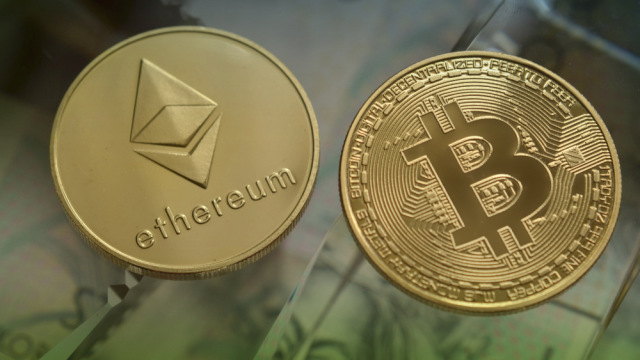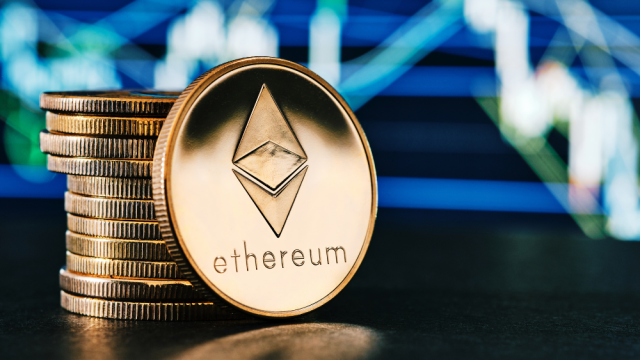"Low Bitcoin And Ethereum Fees May Not Always Be A Positive Situation."
- Posted on July 4, 2024 6:04 AM
- Cryipto News
- 537 Views
Bitcoin and Ethereum users are experiencing extremely low fees. What is the reason for this?

Bitcoin and Ethereum Users Facing Low Fees: What's Behind It?
Bitcoin and Ethereum users are encountering notably low fees when transferring funds within both ecosystems.
The average Bitcoin (BTC) transaction fee fell to $1.93 on June 23, marking the lowest level in eight months. Ethereum's average fees, on the other hand, were recorded at $0.70 on June 22, a significant drop from $2.50 in March.
Vitali Dervoed, CEO and co-founder of decentralized exchange Spark, noted, "The decline in Bitcoin transaction fees is largely due to reduced network congestion and changes in mining activities following the recent halving." Dervoed, who has over a decade of experience in various financial institutions including banks, fintech startups, and DeFi, stated that this drop is not surprising.
"As miners adjust to lower profitability, halving typically leads to a temporary reduction in activity. This decrease in activity can reduce competition for block space, thereby lowering fees," he added.
Keyrock's business development manager Justin d'Anethan also mentioned additional factors contributing to the fee decline. He said, "In recent months, there was a huge surge in transactions following the introduction of Ordinals and Runes, but although the excitement hasn’t waned, it seems to have slowed down."
Carlos Mercado, a data scientist at blockchain data firm Flipside Crypto, pointed to Ordinals as a contributing factor. "After the halving, there were some short-term increases in BTC activity and fees on the chain. However, overall, the story of Ordinals and BTC inscriptions may strengthen and weaken," he said.
Bad News for Bitcoin Miners
While lower transaction fees are a positive development for users, the situation is less favorable for miners.
Mercado highlighted that Bitcoin (BTC) transaction fees previously compensated for lost block rewards. However, in the long run, miners need to cover their real-world electricity and computation costs to maintain Bitcoin's security. Mercado emphasized that halving cuts revenue in half overnight, and the only way to compensate for this loss is through higher prices or more revenue from transaction fees.
Justin d'Anethan also touched on similar points in his analysis. He noted that fee fluctuations have minimal direct impact on Keyrock but may negatively affect others. "From our perspective, low fees are neither positive nor negative. Bitcoin remains as it is. Miners might be feeling the pain, as the blow from halving could have been temporarily softened by a higher number of transactions," he said.
d'Anethan added that the conditions following the halving period are still being felt, and some miners might be selling BTC to compensate for lower earnings.
Ethereum Fees
While the decline in Bitcoin fees is associated with the halving and reduced demand for Ordinals, the drop in Ethereum fees is linked to the Dencun upgrade in March. d'Anethan explained that Ethereum faces a counterintuitive dynamic where costs rise if more people want to use the network, reducing the number of users and thereby lowering fees.
He highlighted that a significant portion of Ethereum traffic has moved to Layer-2 solutions like Arbitrum, Optimism, and Base. "The Dencun upgrade aimed to make Layer-2 activities much cheaper, impacting both developers and users," he said.
Vitali Dervoed agreed that the shift to Layer-2 solutions has reduced Ethereum's fees and positively contributed to Ethereum’s scalability. "The drop in Ethereum fees is primarily due to the increased adoption of L2 solutions like Optimistic and zero-knowledge rollups. With most complex and derivative transactions moving to these L2 platforms, Ethereum’s main chain has become smoother for basic transactions, resulting in lower fees," he said.
Are Low Fees Good or Bad?
Whether low fees are good or bad depends on the perspective. Dervoed noted that low fees can be seen as positive signals for ecosystems and mark significant progress in Ethereum’s scalability roadmap. d'Anethan emphasized that it is challenging to expect a substantial increase in transaction volume and fees without a clear catalyst, as the crypto sector remains highly volatile and prone to rapid changes.
Contrasting Views
While Dervoed and d'Anethan generally view low fees positively, Mercado offered a more bearish perspective. Mercado stated that similar trends in both Bitcoin and Ethereum lead to comparable downward results. He noted that the Bitcoin network provides miners with BTC worth $27 million daily, with only about 5% of that matching transaction fees. Regarding Ethereum, Mercado mentioned that staking rewards amount to $8 million daily, with about 20% matching EIP-1559 and blobs. He expressed concern that Ethereum's proof-of-stake mechanism could lead to supply surpassing regular burns, potentially resulting in long-term ETH inflation.
For real-time updates and the latest news on cryptocurrency markets, you can follow Kriptospot.com.

